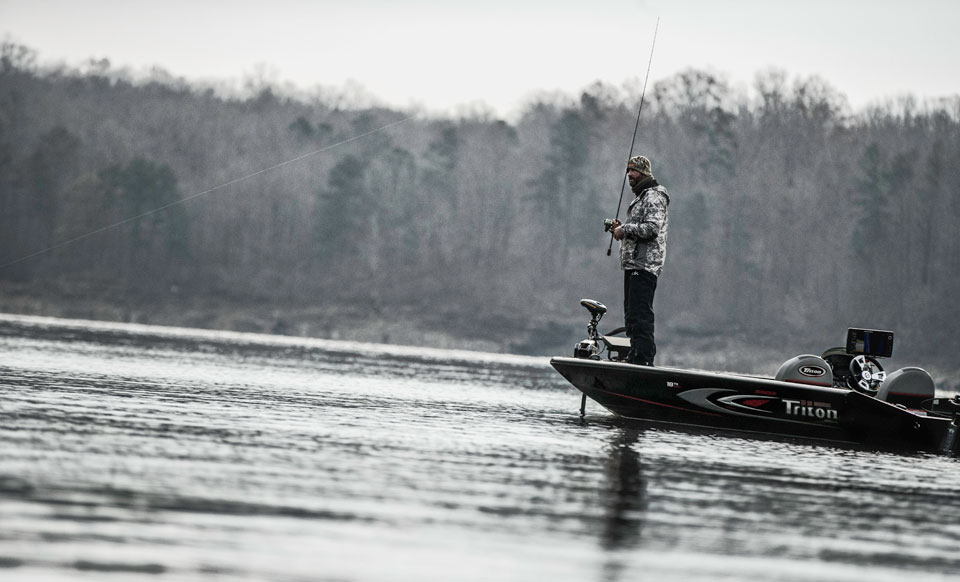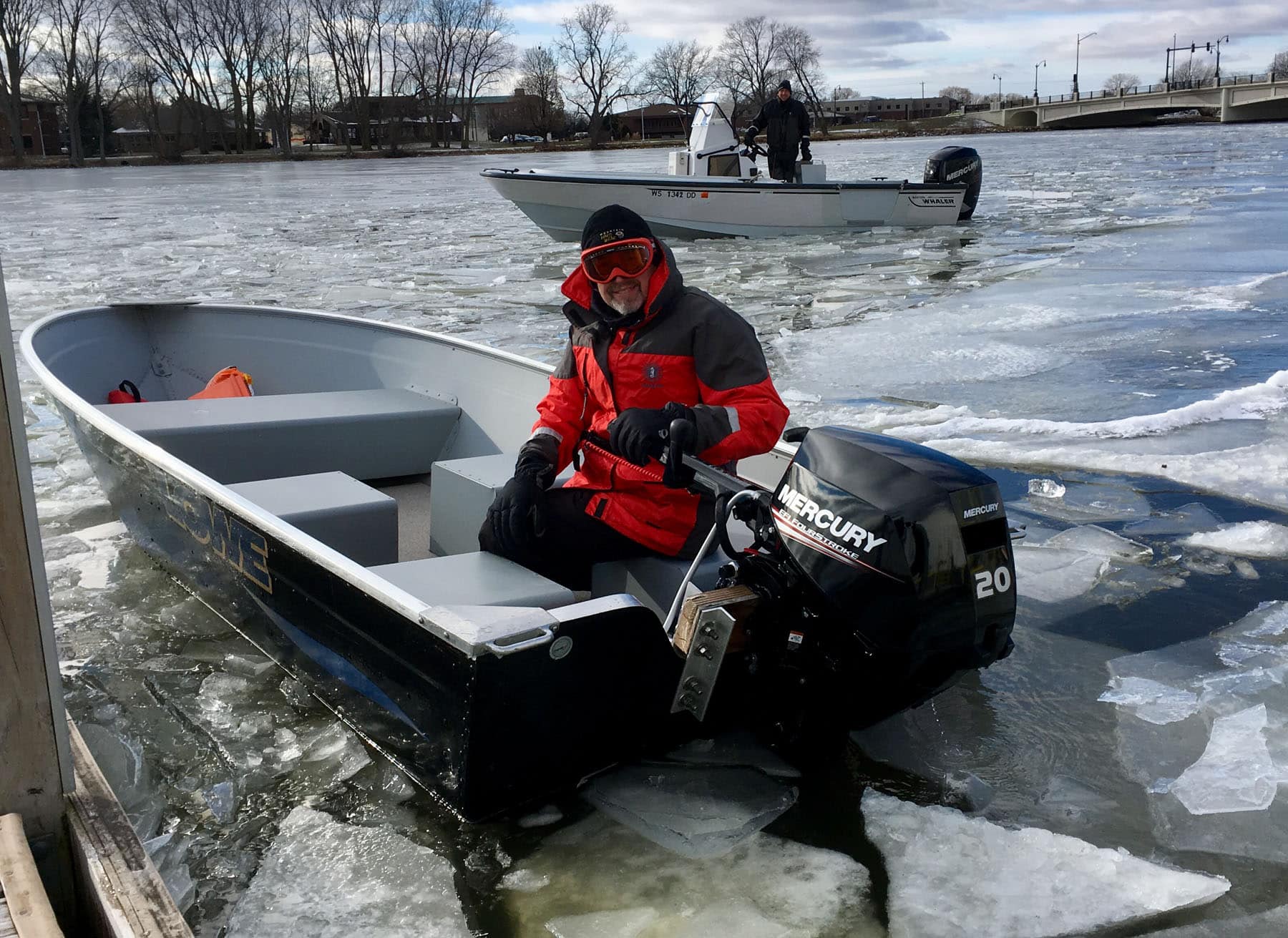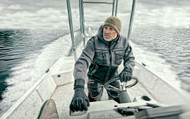5 Tips for Successful Fishing In Cold Weather
Posted by StewBall on 29th Jan 2024
With winter coming on fast and the temperatures dipping to new lows, you may be tempted to pack up your lures and fishing rods until next spring. But fishing in cold weather can be as great as it is in the summer, especially since the weather keeps most anglers cozied up next to their wood burning stoves. Winter is a particularly great time to fish because freshwater species group up, meaning more fish on your lure. But winter fishing takes some prep.
Here are five fishing tips for cold weather angling.

1. Location, Location, Location
True of fishing during any season, picking the right spot to cast your line is pivotal. If you aren’t sure where the good fishing spots are during the winter months, check out your state’s (or the state you’ll be fishing in) Department of Natural Resources website. They have all the up-to-date information on what fish are in which lakes, what time of year offers the best catch and any creel limits you’ll need to heed. Ultimatebass.com is an excellent site for nationwide information.
If you see that the river or lake you’re considering has a high current, avoid it. High currents aren’t good for fishing and can be dangerous.
2. Time the Weather
While you may be tempted to stick to your regular springtime and summer fishing schedule of holidays and weekends, wintertime fishing in cold weather is a bit more touch-and-go. Because the weather drastically affects fish activity levels, some of the best conditions for fishing depend on when Mother Nature decides to present us with a cold front.
Fish feed just before the passing of these, so if you can be out on the lake just before the front passes, you’re going to catch a heap of fish. Regardless of the weather, the best time to fish during the winter months is between 10 a.m. and 4 p.m. If you go any earlier or later, the bites may be fewer and farther between.
3. The Right Gear
Winter is hard on fishing gear, so make sure you tune up your reels. What kind of works in the summer won’t cut it in the winter. Cold temperatures will freeze up your reels’ stiff bearings and thicken old oil and grease. Don’t know how to maintain your reels yourself? There are plenty of repair shops that will be happy to help. Sure, you’ll spend a little money, but you won’t be wasting a trip if you find your reel has seized up after you’re floating in the middle of a lake a hundred miles from home.
Also, consider your line. Water that collects on a line or in a rod guide will freeze and eventually prevent the line from moving through the eyelet. Use line conditioner to keep your line straight and tangle-free.
Beyond good fishing line and a freshly maintained reel don’t forget about keeping yourself warm.
Keeping yourself warm! Frostbite is real, and it can set in fast, especially if your hands or feet end up wet. Look for insulated, waterproof boots or shoes and both a pair of insulated gloves to keep your fingers warm and fingerless gloves for when you need to be more dexterous.
Wear long underwear for an added layer of warmth, as well as thick socks and a good hat to keep your head and ears warm. And of course, you’ll need a pair of good coveralls and a winter coat. If you’re concerned about getting your clothing wet, there are waterproofing sprays available online that will give you added protection.
Risking your life in cold weather to go fishing means you needs a reliable OUTBOARD engine.
However, no matter how invigorating late-season boating can be, you'll need to ensure your outboard and boat are ready to withstand the cold.
Before you set the alarm clock for early tomorrow morning, keep these facts and recommendations in mind.

If you have a FourStroke outboard, check the owner's manual for advice on proper oil viscosity for cold-weather operation.
The most common cold-weather outboard problem is something many hunters call "duck hunter's freeze-up," which occurs when a hunter in the winter months tilts up the outboard to keep it out of marsh muck or to pull their skiff ashore. Tilting up the outboard traps water in the motor, which freezes if the air temperature is low enough. Frozen water in your outboard almost always results in serious engine damage.
REMEMBER: When the air temperature sinks below freezing, always keep the motor in its down position when it's not running. After each outing, pull the hull drain plug in your boat and tilt the bow up to allow all water to drain from the bilge.
And after you've taken your last boating trip of the season, don't forget to winterize appropriately, including these basic steps: Gasoline containing alcohol (ethanol or methanol) can cause the formation of acid during storage and can damage the fuel system.
Click HERE to learn about Outboards and ETHANOL
If you use gasoline that contains alcohol, drain as much of the remaining gasoline as possible from the fuel tank, remote fuel line, and engine fuel system.
Then fill the fuel tank and engine fuel system with treated (stabilized) fuel to help prevent the formation of varnish and gum. Following these simple tips – and the advice offered in the owner's manual for your engine – will keep you boating longer now and in the coming spring.
Marine Parts Warehouse is a great source for used and outboard parts.
4. The Right Bait
If you typically use lures during the spring and summer months, you’re going to have a tough time catching fish in the cold. When the weather turns frigid, both fish and their live food sources move more slowly than they do when it’s warm. Because of this, live bait is far better to use in the winter than lures. Lures will move too quickly through the water, which will spook your fish. Live bait will react to cold water and be more enticing to hungry fish. If you insist on using lures even in winter, select ones that have either hair or feathers attached. This will help maintain action in the cold water.
Also, select artificial bait that has the potential to catch multiple species of fish and reduce your lure size. Because the cold reduces a fish’s metabolism, they aren’t going to go for the big stuff. Two- to three-inch lures are going to catch the most fish. Also, consider using attractants for soft plastic lures. Because fish aren’t as hungry in the cold, attractants will encourage them to bite and hold on once they do.
It should be obvious, but not everyone takes their safety into account when it comes to winter fishing.
According to the U.S. Coast Guard, January and February are the months with the greatest boating fatalities, so play it safe!
First, you should never fish alone during the cold season, even if you’re a pro. If you fall overboard, the cold water may shock your system. Your muscles will cramp, and hypothermia can set in fast. You may not be able to pull yourself back onto your boat under your own power. And because there aren’t many fishermen out on the water during the cold months, it’s doubtful any other anglers will be in the area to help you if there’s an emergency.
Leave a float plan with your spouse, family or friends. Agree to check in with them on a preset schedule. If they don’t hear from you, they should call the proper authorities. Never change your float plan or location without telling someone first.
Wear layers and avoid cotton. Synthetic fabrics or wool are best. When cotton gets wet, it’ll freeze you in your tracks.
Consider investing in hand and foot warmers like Hothands. These are long-lasting air-activated warmers that can provide up to 18 hours of heat. Stuff them into your gloves and shoes to keep your extremities toasty warm. You can even find vests meant to be worn beneath your jacket that do the same thing.
Make sure you have a life jacket for each person on board your boat. You should be wearing it over your coat. Life jackets don’t work if they’re on the boat and you’re in the water. Look into investing in a built-in boarding ladder or a rope with loops to assist you in getting back on board if you do happen to fall overboard.
And finally, don’t forget the food. Pack plenty of high-energy foods for your trip. Granola bars are great because you can eat them with your gloves on. And don’t forget a thermos (or two). Having hot coffee out on a cold lake is a godsend, and hot soup for lunch is even better.
STAY WARM and ENJOY the FISHING!

